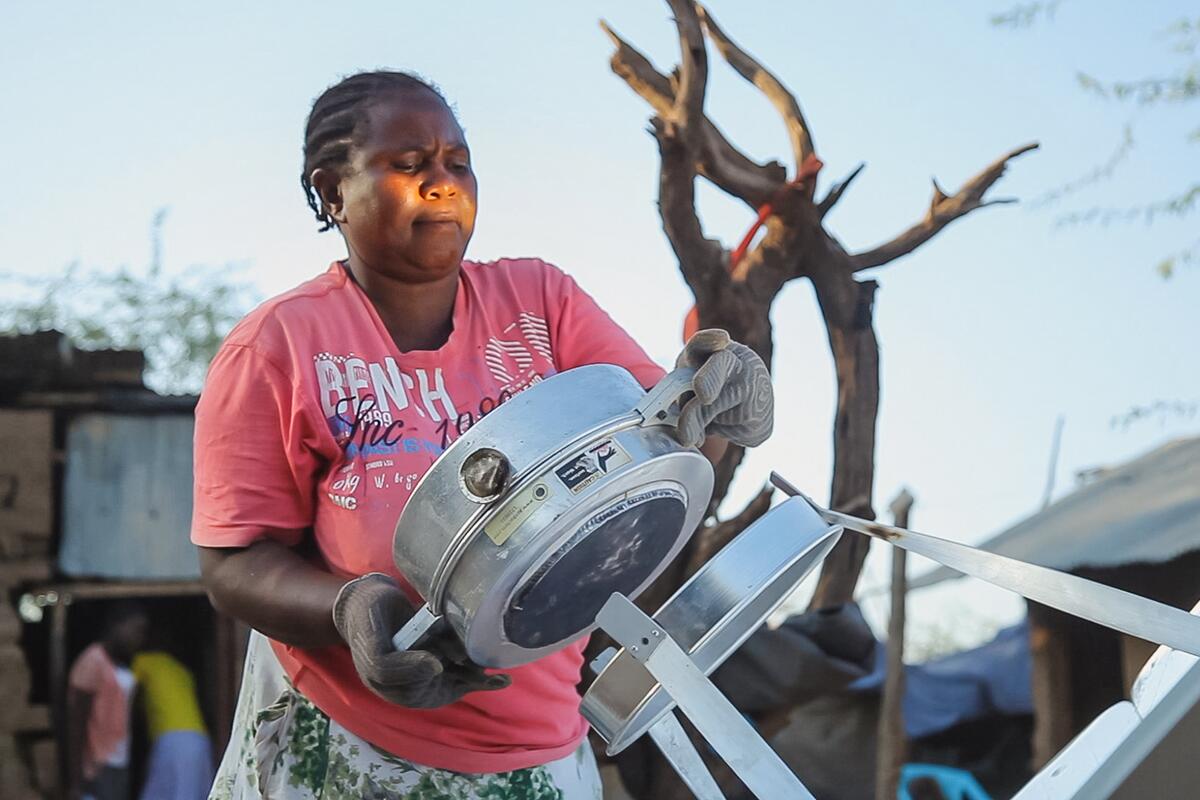'Engineering Fire' documentary premieres on BTN

CHAMPAIGN, Ill – University of Illinois engineers travel to Haiti to encourage solar cooking in a new program for the Big Ten Network. “Engineering Fire” tracks a team of scientists as it develops and tests a solar-cooking device called a Sun Bucket. The 30-minute documentary video on BTN premiered May 12 at 7 p.m. CDT, immediately following the Illinois baseball game versus Purdue University.
It’s estimated that nearly 40 percent of the world’s population uses solid-fuels fire to cook their food and heat their homes. This practice has devastating effects. The use of solid fuels leads to deforestation and atmosphere pollution. Women and children around the world gather fuel for indoor fires, then tend them throughout the day. The smoke they breathe causes 4 million deaths a year, health experts believe.
Solar heat could play a major part in eliminating this problem. Earth receives more solar energy in one hour than humans can use in an entire year. But one big drawback to solar cooking is storing the heat and energy. A team of engineers led by Bruce Litchfield, a professor emeritus of agricultural and biological engineering at the University of Illinois at Urbana-Champaign, decided to tackle this issue.
Litchfield’s team received funding from the National Science Foundation to create a viable, affordable and simple alternative heating and cooking system using solar energy. The Sun Bucket allows people around the world to replace fire as a heat source for their traditional cooking methods. “Early in the process, we talked to a lot of people around the world and realized that changing how you cook is a big ask,” Litchfield said.
The Sun Bucket works by focusing the heat of the sun onto the cooking unit. Sealed inside the cooking unit is a thermal material that heats up and liquefies. After two hours, the unit can reach temperatures of up to 700 degrees, the same as a gas or electric stove. The outside surface of the unit is cool to the touch so that users can remove it from the charger and take it inside. The hot liquid inside the vessel allows the vessel to maintain heat in the cooking unit for more than six hours.
“Engineering Fire” captures the Sun Bucket team’s travels to India, Africa and Haiti to research how people use solid fuels in their homes. Litchfield and the team field-tested their device with help from the Navajo Nation in Arizona and New Mexico. Much of the population there lives in remote areas and relies on solid fuels. Morgan Yazzi, a member of the Navajo Nation, said the Sun Bucket “sure beats chopping wood.”
The documentary follows along as the Sun Bucket team sets up cookers at Loving Shepherd Ministries in Les Cayes, Haiti, which provides stable homes for vulnerable children around the world. Haiti is the poorest country in the Western Hemisphere, where people spend up to one-third of their income on fuel. Loving Shepherd Ministries hopes the solar cookers will reduce its expenses on fuel so that it can provide more resources for children.
Producer Tim Hartin said he was inspired to create “Engineering Fire” when Litchfield told him about the project. “Bruce inspires his students to take what they learn at Illinois and address societal issues. He tells them that they just need to think of it as an ‘engineering problem,’” Hartin said.
“Engineering Fire” was produced by Tim Hartin, Kaitlin Southworth and Alison Davis Wood of the Division of Intercollegiate Athletics and the Office of Public Affairs.